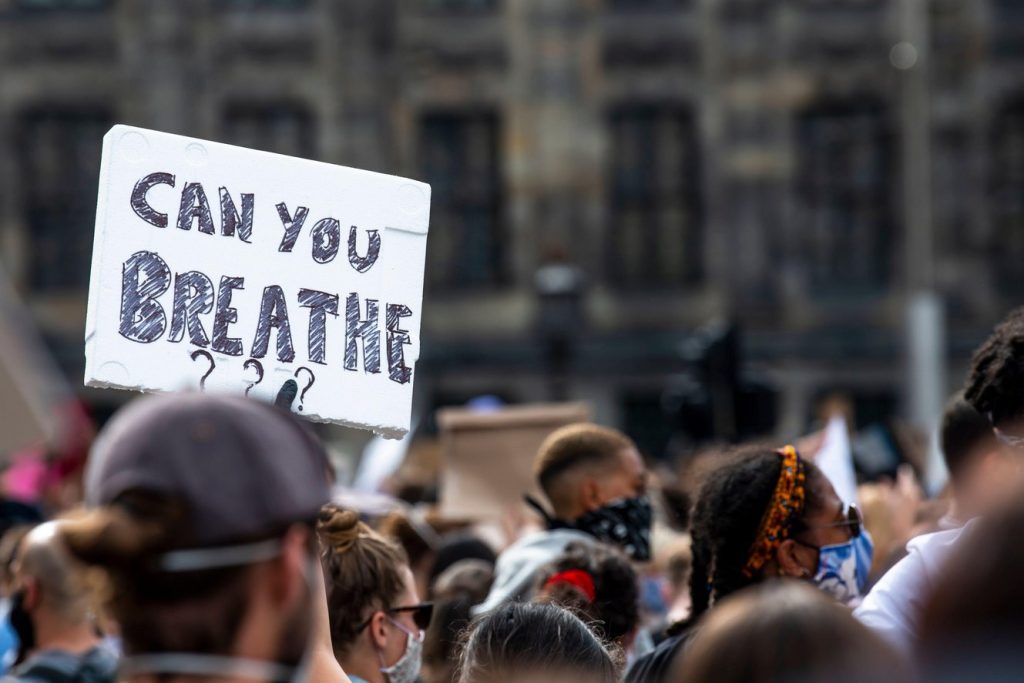This week, people gathered in cities across the country to protest police brutality and racial injustice. The demonstrations began after a video captured a Minnesota police officer killing George Floyd, a black man who became the latest casualty in America’s long history of violence against people of color.
As a Buddhist publication, we have asked ourselves how we can be of service. There are some Buddhists who would tell us to recognize this suffering as samsara and to refrain from political and social action: samsara can’t be fixed. We don’t believe that is the most beneficial or compassionate message that the dharma can offer right now.
With some exceptions, social action has not been at Buddhism’s center, but the dharma can give us insight into the suffering that we are all experiencing and witnessing. Although the answers we seek may not be explicit in ancient scripture, they nonetheless can be derived from its teachings on wisdom and compassion. What Karen Armstrong writes in paraphrasing the Christian theologian Hans Frei in the current issue of Tricycle applies as well to our reading of Buddhist scripture: “the Bible and the newspaper, as it were, lie side by side.” Our fellow citizens, drawing from the teachings, may have more to teach us about this particular moment than the masters of old.
Traditions change to meet the needs of the times, and Buddhism is no different. New schools of thought have emerged that see the dharma as a call to engage with the issues of the day. This has resulted in many eye-opening talks, discussions, and essays by Buddhist teachers and practitioners of color.
Tricycle has had the honor of serving as a platform for these works throughout the years. We have selected some of those that are particularly relevant today, and as events continue to unfold, we will continue to seek out voices that can bring greater clarity. If the killing of George Floyd makes anything clear, it’s that we cannot afford to stand by in passive indifference.
***
by bell hooks
Practicing Buddhism does not make you anti-racist. Feminist scholar bell hooks explores white practitioners attachment to the mistaken idea that spirituality makes us anti-racist.
Learning to See Our Racial Biases
With Rhonda Magee
How do we do the inner work of racial justice? Law professor and mindfulness instructor Rhonda Magee discusses how meditation practitioners can wake up to unacknowledged racial prejudice.
By Robin Hart
“We are judged as a whole by the actions of the worst of us, while the best of us are seen as exceptions.” A practitioner explores how we can work toward greater understanding of ourselves and others in times of instability and crisis.
By Larry Ward
How can we move forward from deconstruction to reconstruction—from trauma to resilience?
By Hanuman Goleman
“Race is not real, yet it can control us. We now understand that race is an idea constructed by a power elite to justify the dehumanization of people in order to subjugate, exploit, enslave, and kill them without repercussion.”
By Jan Willis
An African American professor of Buddhism encourages sanghas to rethink their attitudes toward members of color.
Thirteen teachers of color share dharma talks on community, identity, and healing.
An interview with Zenju Earthlyn Manuel
“Many have said to me that they do not need sangha. My response has been, ‘Then where will you go when you begin to experience liberation? Who will know the journey you have taken and your vow to be awake?'”
Thank you for subscribing to Tricycle! As a nonprofit, we depend on readers like you to keep Buddhist teachings and practices widely available.
